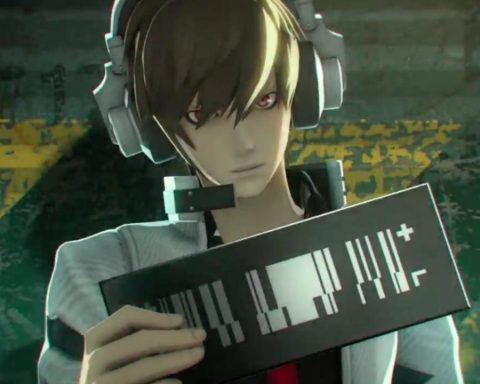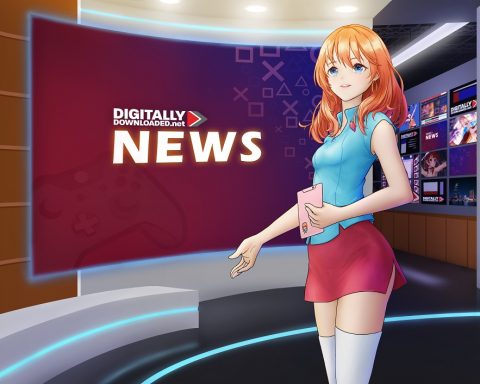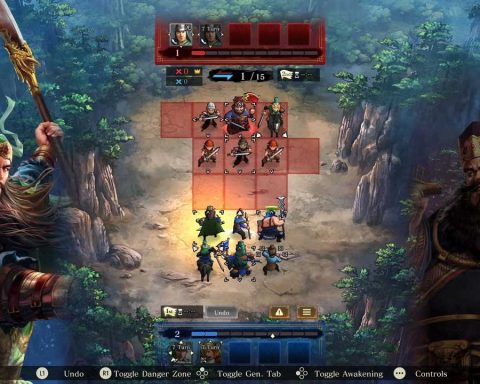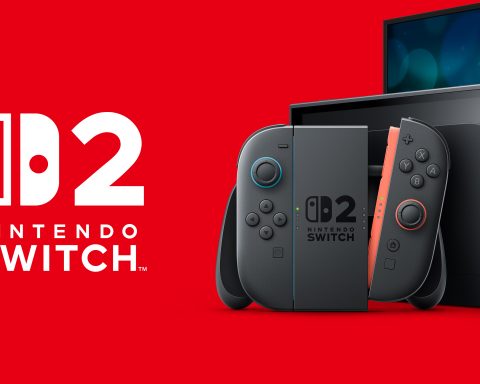Last year the DDNet pulled together a list of the 100 canonical games, that we believe everyone with an interest in the history, heritage, and artistry of games should play. This year we’re back with another “top 100”, but this time, we’re looking specifically at our favourite genre; the RPG!
The whole DDNet team has come together to craft a list of 100 RPGs and JRPGs that we believe reflect the most important – and best – games the genre has ever produced. Rather than ranking them, we’ve arranged them in approximate chronological order – from the earliest examples of the genre right through to the most recent. Each day we’ll reveal another selection of games, but they are all as valuable as one another as far as we’re concerned.
Coming right at the end of the Wii’s life (or well after the Wii U was already out, in the case of the US market), Pandora’s tower is the great forgotten JRPG. It really is a masterpiece though. Something akin to a high-brow Castlevania, the game has some very lofty ideals and ideology. Something of a Shakespearean tragedy in tone, mixed with majesty of gothic architecture and a dash of Shadows of the Colossus environmentalism, Pandora’s Tower is a game that isn’t easy to pigeonhole, and that’s exactly why it is so effective; it’s so different that it demands you think about it as you play.
The Witcher 2: Assassins of Kings (2011)
A more than worthy follow-up to the first Witcher game, CD Projekt Red’s The Witcher 2: Assassin of Kings plunges you headfirst into the bleak, high-fantasy setting of Andrzej Sapkowski’s famous novels and shows absolutely no mercy in doing so. From the rip-roaring start to the constant deluge of political intrigue and terrifying beasts out for your blood, it’s an excellent examination of humanity vs monstrosity, and apt in its observations about where the true power lies in historical monarchies.
It’s a constant race against time, or at least it will feel that way. The game’s momentum ricochets to a startling clip once you’ve thrown into the middle of the fray and framed for a murder that you couldn’t possibly have committed. Old characters are up to their usual tricks, and new characters pose both moral and emotional dilemmas. While the ending left some hardcore fans high and dry, it was hardly enough to put a dent in everything the game had accomplished until its conclusion. Dry humor? check. Style? Check. Unbelievable thematic cohesion despite the bookshelves worth of lore and backstory? Witcher 2 definitely ushered the franchise into a new age with its arrival, ill-fated epilogue or no.
NieR (2010)
Nier is a game that has to be played to be believed. Hell, it’s a game that has to be played in order for most people to have even the most basic understanding of its core themes. If you struggled with Evangelion’s comparatively ham-handed symbolism, then this may well be too esoteric. However, those who have picked up Nier have never gone back.
While the newest member of the loosely philosophically-linked NieR family may be the most fresh in our minds, the original Nier is the wellspring from which all the good things about NieR: Automata fountained forth. You’ve got incredible variety in gameplay styles and mechanics, an overarching narrative rooted in existentialism that asks all the best kinds of hard questions, and nigh impenetrable timelines. You’re drip-fed idea after idea, and you’re always on your toes. Everything works seamlessly to get you to where you need to be in terms of the plot, including the use of an unearthly soundtrack. While it may not have been the best looking game on the market, it’s a true diamond in the rough, if only for the way that it continues to keep fans up at night.
Mass Effect 2 (2010)
When we try to look back and analyse why the original Mass Effect trilogy has had such an impact on us, the answer tends to settle on the series’ middle part. It was in this episode that it became clear the scope of the threat that was hinted at in the first game was clearly galaxy wide, raising the stakes and the sense of impending doom to a level most other games can’t compete with.
However, much more memorable was the game’s team building effort, where numerous characters of various backgrounds, races, species, construction, and gender congealed into a single team led by the player. Each with their own detailed backstory, each with their own mannerisms, each so well defined, each fighting with the hero character through personal team building quests, and all united to save life and the universe as we know it. Character development never came better than that.
Tokyo Mirage Sessions #FE (2015)
A Persona game in all but name, Tokyo Mirage Sessions is such an impressive look at Japanese popular culture, just as the Persona games are all effectively games about school life in Japan. In basic terms it’s a turn-based JRPG, and while the combat system is standard for the genre, the storytelling is something else entirely, supported with vibrant characterisation, a genuine sense of humour, and an incredible soundtrack. The Fire Emblem crossover is barely prevalent, but that’s hardly an issue. In a game which reflects on, asks questions about, and at times celebrates everything from fashion to Hatsune Miku, AKB-48 and the otaku that support them, Tokyo Mirage Sessions is something deeply relevant to the very cultures that also sustain videogames in Japan.
Undertale (2015)
Undertale garnered critical acclaim for its neat handling of what we expect RPGs to be, and at its core is a critique of RPGs as we know it, especially regarding the ways that players can be incentivised or punished for the power that they think they have. From its unique art style to its nods to inclusion and pop culture, it packs a lot of unexpected punch both in the narrative sense and in the emotional sense.
Toby Fox did an excellent job with the various elements from Undertale, ranging from the finely tuned, humanising characters to the music that was used to incredible effect. Choosing to engage with the world around you wasn’t just about exploring; it was also about coming to terms with the fact that while indiscriminate killing may be rewarded in other games, it’d earn you more than a rap on the wrist here. Having to choose between getting to know the insecurities of those you were facing in order to find a peaceful solution and just blasting them to bits was a choice that you had to make frequently, and often the permanence and depth of that choice wouldn’t be apparent until much later. We’ve never seen a game like Undertale and it’s likely that we won’t for quite some time.
NieR: Automata (2017)
If NieR was the greatest game of all time (and it was), what was the one game that was going to be able to top it? The sequel, of course. NieR: Automata took everything that was so potent about the original – the storytelling, the music, the visual style, and then threw over the top the more superficial elements to help make the game palatable to the wider audience. It played better, and ran at a smoother framerate. The marriage between Yoko Taro and PlatinumGames worked a treat, with Platinum demonstrating once again that it’s the best action game developer going around, executing every one of Yoko’s ideas to absolute perfection, no matter how out there they were.
What makes NieR: Automata so special is that in making that transition into being something accessible to the mainstream, it never loses respect for the audience’s intelligence. It’s a complex, deep game about religion and existentialism, determinism and nihilism. It’s rare that a game of this profile is allowed to be like that, but NieR: Automata is that rare game, and we can’t think of a more perfect experience.
Bravely Second (2015)
Bravely Second: End Layer is incredibly true to the hit that came before it, and it’s a great example of a JRPG that has stayed almost impossibly true to its roots whilst continuing to deliver a rich and enjoyable experience. The focal narrative concerns, classes, and enemies in Bravely Second are the direct kin of those Bravely Default, which may have seemed like Silicon Studio wasn’t giving itself much wiggle room or direction the second time around. However, while the first title in the series focused on the demarcations between good and evil, things are a little different this time around.
For a game that hadn’t changed much in terms of core mechanics and gameplay, it managed to breathe new life into instantly recognisable characters. Customisation lends some much-needed flavour to the proceedings, with all manner of job combinations introduced in amazing ways. It revisits the characters of old but takes a new approach to beating those who oppose you with a stick – Bravely Second asks some important questions about redemption, sacrifice, and rebirth. Its both aesthetically and emotionally on point, despite occasional moments of cheesiness, but that just makes the experience all the more human. Don’t be put off if you’ve never touched a Bravely title; this is one that you won’t want to miss, and there’s plenty to love even if it’s more than just a little eccentric.















